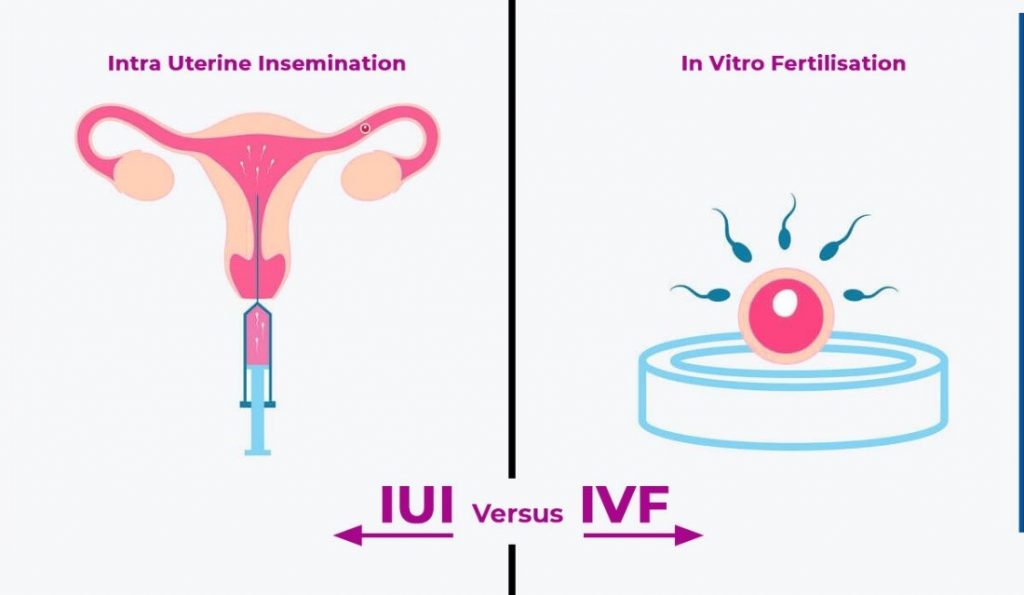Couples who face issues in getting pregnant can opt for ART (Assisted Reproductive Technology) Techniques such as IVF (In-vitro Fertilisation), IUI (Intrauterine Insemination), ICSI (Intracytoplasmic Sperm Injection), Donor Sperm or Egg and more. These techniques help such childless couples to achieve successful pregnancies and fulfil their dream of becoming parents. Consult the best IVF centre in Punjab and consult an IVF specialist. They will examine you and your partner and will determine personalised solutions for you. Depending on your condition, IVF, IUI, ICSI, or other ART techniques can be recommended. In this article, we will explore IUI (Intrauterine Insemination) in detail and learn about its procedure, when and why it is recommended, and how successful it is.
What Is IUI (Intrauterine Insemination)?
IUI is one of the common ART techniques. It is a simple procedure that can help childless couples get pregnant by increasing their chance of conceiving. In this procedure, the doctor puts the sperm directly in the uterus, which helps increase the likelihood of conceiving. Visit the best IVF Centre in Bathinda for successful IUI treatment. Typically, the sperm travels from the vagina to the cervix, then to the uterus and lastly to the fallopian tubes. When the female body releases eggs, this is where egg and sperm meet and fertilise. IUI saves time and distance the sperm has to travel typically, and this increases the chances of the couple getting pregnant.
When Is IUI Recommended?
There are certain situations in which the doctor may recommend IUI; these situations are as follows:
-
Cervical Mucus Issues: The cervix creates a mucus that helps the sperm to travel from the vagina to the uterus. If this mucus is too thick, it makes it difficult for the sperm to swim through. In IUI, the sperm is directly placed in the uterus, making IUI a better option in this case. Consult the best IVF centre in Punjab for the best IUI treatments.
-
Low Sperm Quality Or Sperm Impairments: Semen analysis is done to check sperm quality, quantity, shape, size and more. If the sperm quality is low or the sperm is impaired, which means their shape or size is not normal, then IUI can be helpful in this case.
-
Unexplained Infertility: If the exact cause of infertility is not known, IUI is recommended and does provide accurate results (although the results differ depending on multiple factors).
-
Ejaculation Issues Or Erectile Dysfunction: If a male is unable to ejaculate or has problems sustaining an erection, it can make it difficult for the male to impregnate his partner. IUI can be a useful method in such situations. Consult the best doctors from the best IVF centre in Bathinda to ensure effective results.
-
Semen Allergy: Although it is rare, some women have an allergy to semen which causes redness, swelling and burning sensations in the vagina. In IUI, the sperm are washed before implantation. Thus, the proteins causing irritation are washed off, which makes IUI effective in this case.
-
Using Donor Sperm: In cases of same-sex couples or males having very low-quality sperm, donor sperm is required. IUI is used in such cases, and it is called donor insemination.
IUI Procedure
-
Ovulation: The IUI procedure lasts for 28 days, which is the same as the menstrual cycle. The doctors closely examine your ovulation to ensure the sperm are injected at the right time. If it is done correctly, you can achieve a successful pregnancy. Consult the best IVF centre in Punjab for reliable and effective IUI treatment.
-
Preparation: Your partner’s sperm are collected on the same day and prepared using a procedure called ‘sperm washing’. This helps separate concentrated healthy sperms to be used. The partner can provide a sample before as well; in this case, the sperm are frozen until required.
-
Insemination: In this, actual insemination takes place, which only takes a few minutes. The doctors place the washed sperm inside the uterus. To achieve pregnancy, the sperm must fertilise the egg, and the fertilised egg must be implanted in the uterus lining.
How Successful Is IUI?
IUI may or may not be successful, depending on various factors. Each couple might have different results from the IUI treatment. Its success rate depends on the cause of infertility and other factors to determine whether IUI will be successful or not. Consult the best IVF centre in Punjab to ensure whether IUI is the right choice for you.
It is generally successful in cases of erectile dysfunction, ejaculation issues, cervix mucus issues, sperm impairments, unexplained infertility and donor sperm insemination.
It is not recommended in case of moderate to severe endometriosis, blockage, damage or removal of both fallopian tubes, severe fallopian tube disease, multiple pelvic infections and for men who produce no sperm (unless the couple decides to opt for donor sperm).
Conclusion
IUI is one of the effective ART techniques that can help many couples become parents by increasing their chances of becoming pregnant. IUI can be suitable for some issues, while it may not be the best for others. Consult the best IVF centre in Ludhiana to know whether IUI is the right choice for you and for effective and reliable treatments.





